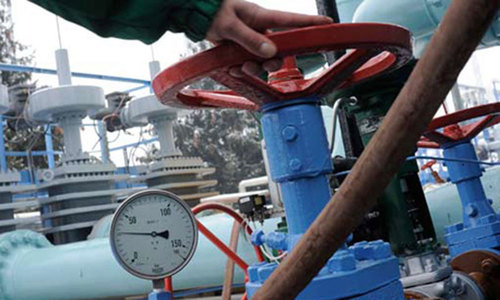ISLAMABAD: Winter gas supplies face growing challenges as the Sui Southern Gas Company Ltd and Sui Northern Gas Pipelines Ltd, also known as “the Sui sisters", could require up to Rs55 billion in subsidies to divert expensive imported Liquefied Natural Gas (LNG) to meet demand from domestic consumers.
Last year, the government subsidised LNG for domestic consumers for the first time and paid Rs29bn to ensure that the price difference between imported and domestic gas did not pass through to household consumers.
The LNG average price works out at about Rs1,580 per mmcfd compared to Rs300 per mmcfd of average sale price for domestic consumers.
The Economic Coordination Committee (ECC) will now review the matter in its next meeting where both companies are preparing a vigorous representation.
Cost of LNG diversion to subsidised domestic consumers rises sharply from last year
A senior official at the Petroleum Division tells Dawn that the ECC recently decided that the “LNG terminal operators may allocate surplus re-gasification capacity of their terminals to third parties on commercial basis” and that “private sector importers and shippers can sell directly to the SNGPL and SSGCL consumers”.
He said since then, the ‘Sui sisters’ have protested against the decision with federal government. The companies have pointed out that in the absence of any additional LNG demand; all private parties would be targeting existing clients in the absence of no new consumers for the existing LNG price in the market. As such, the private operators will take away all the best consumers in the system, leaving public utilities with a large number of high-loss, heavily subsidised and low-revenue consumers instead.
Also, the private suppliers would be free to sell their LNG at competitive rates without any government intervention, unlike the two gas utilities who are bound to sell both RLNG and domestic gas at prices negotiated or fixed by the government. Also, the gas utilities were bound by LNG import prices negotiated by the federal government or its entities other than gas utilities on long-term basis while private companies could procure spot cargoes at the timing of their choice and suitability.
He said the SNGPL had also reported to the government that it estimates required LNG diversions to the domestic sector in 4-5 winter months at about 1.4 billion cubic feet per day.
This will include 138mmcfd in November, 266mmcfd in December, 472mmcfd in January, 386mmcfd in February and 130mmcfd in March next year.
Officials said, “if diversion of LNG was not allowed, the SNGPL would not be able to divert LNG to domestic sector which shall result in large scale load management in the domestic sector and further lead to consumer hue and cry.”
In addition, the gas companies will not be able to arrange LNG imports because of about 120 days required for the process.
An official said the next meeting of the ECC will now take up all these issues in view of serious challenges relating to LNG imports and over Rs55bn subsidy required to meet domestic demand while the government was under an International Monetary Fund programme and LNG importing entities had already exhausted their sovereign guarantee limits.
On the other hand, there is a serious political challenge of gas shortages in the domestic sector in major urban centers, particularly those in Punjab.
Published in Dawn, October 11th, 2019
















































